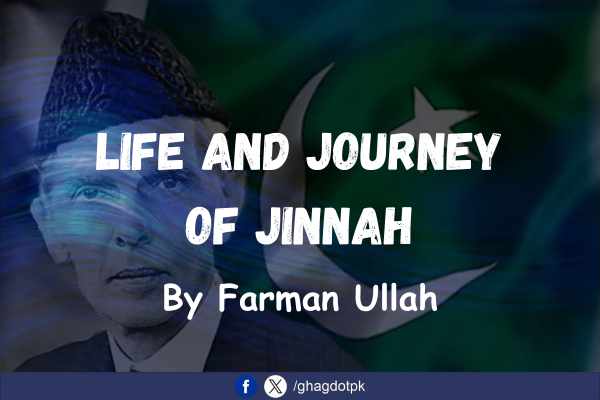By Farman Ullah
Maulana Mazharuddin gave the title of ‘Quaid-e-Azam’ to Muhammad Ali Jinnah in 1937, a fitting tribute to his passionate leadership. Under his guidance, Indian Muslims achieved a separate homeland, Pakistan, and liberated themselves from British rule.
Early Life and Education
Quaid-e-Azam Muhammad Ali Jinnah was born on December 25, 1876, in Karachi. He began his primary education in 1882 in his hometown and went to England in 1893 for higher education. In 1896, Quaid-e-Azam passed the bar exam and returned to his homeland, where he gained recognition as one of the prominent lawyers in the subcontinent.
Entry into Politics
After returning to the subcontinent, Quaid-e-Azam formally entered politics and joined the Indian National Congress in 1906. However, he soon realized that this party represented only Hindus, not all inhabitants of the subcontinent. Quaid-e-Azam joined the All India Muslim League in 1913 but continued to work with Congress, hoping for a change. Disheartened by Congress’s Hindu-centric policies, Quaid-e-Azam finally bid farewell to Congress in 1920 and remained affiliated with the Muslim League until his last breath.
Achieving a Separate Homeland
Under the umbrella of the Muslim League, Quaid-e-Azam achieved a separate homeland for Muslims in the subcontinent. After the establishment of Pakistan, Quaid-e-Azam became the first Governor-General of this sacred land and remained in office until his death on September 11, 1948.
A Lasting Legacy
Quaid-e-Azam Muhammad Ali Jinnah, who gave Indian Muslims a separate homeland, was eager to do more for Pakistan. However, his illness prevented his constructive plans from reaching fruition. On September 11, 1948, Muslims in India were deprived of the leadership of their great leader. Despite many decades passing since Quaid-e-Azam’s death, the thousands who gather at his grave on his death anniversary and the events held in various cities testify that the Pakistani nation still holds him in ardent devotion.
Jinnah in the eyes of Great Leaders
American author Stanley Wolpert, whose book Jinnah of Pakistan is a classic on Quaid’s life, wrote of him, “Few individuals significantly alter the course of history. Fewer still modify the map of the world. Hardly anyone can be credited with creating a nation-state. Mohammad Ali Jinnah did all three”
Sir Patrick Spens, India’s last chief justice before independence, said, “No man or woman is living who imputes anything against his honor or his honesty. He was the most upright person that I know, but throughout it all, he never, as far as I know, for one moment, attempted to deceive anybody, as to what he was aiming at or as to the means he attempted to adopt to get it”
Indian politician Jaswant Singh was expelled from BJP after he praised the founder of Pakistan in his book Jinnah – India, Partition, Independence”I was attracted by his (Jinnah’s) personality, which has resulted in a book. If I was not drawn to his personality, I would not have written the book. He (not only) fought the British for an independent India but also fought resolutely and relentlessly for the interest of the Muslims of India. He (Jinnah) created something out of nothing and single-handedly stood against the might of the Congress and the British who didn’t like him”






